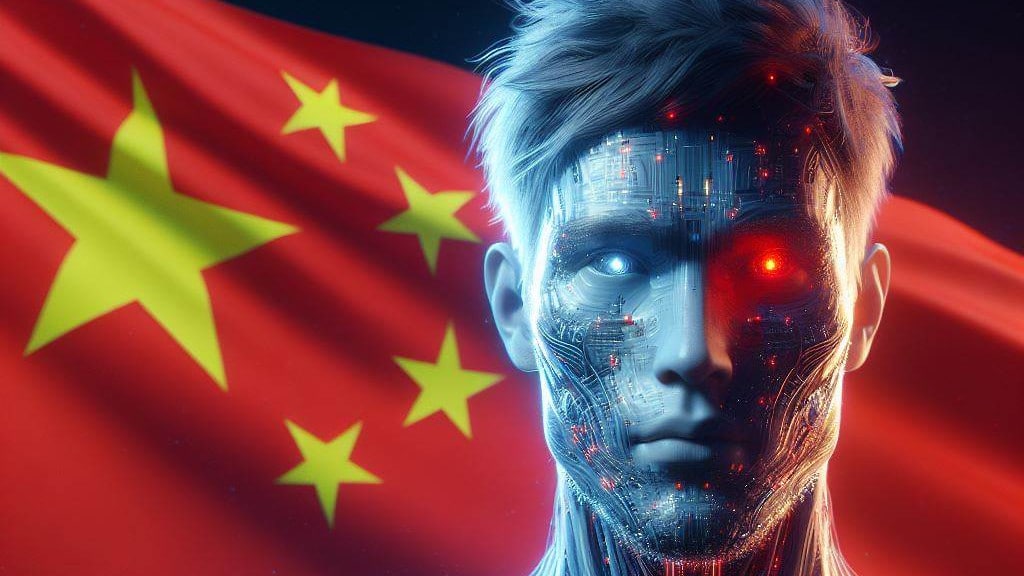China is Catching up to The Global Generative AI Development Race


In Brief
China is forging ahead with generative AI research, emphasizing innovation, security and people-centric governance for the global AI race.

In the wake of the rising tide of consumer generative AI platforms such as Google’s Bard and OpenAI’s ChatGPT, the generative AI market is on the brink of unprecedented expansion, projected to soar to an estimated $1.3 trillion within the next decade, up from $40 billion valuation in 2022, as per a report by Bloomberg Intelligence (BI).
However, China is not sitting idle and rapidly closing the gap, fueled by a wave of important releases and ambitious strategies. Leading the charge, China’s Baidu unveiled its language model, “Wenxin Yiyan,” in March, followed by 360 Security Technology introducing its AI strategy and its ChatGPT clone – Zhinao.
Likewise, Alibaba joined the race in April with its large-scale model – Tongyi Qianwen – and iFlytek launched the Xinghuo large-scale model in May. Other major players such as Huawei, JD.com, ByteDance and SenseTime have also entered the arena, releasing their large-scale model products.
Despite acknowledging a gap between China’s models and ChatGPT-4, Zhou, founder and chairman of 360 Security Technology, emphasized China’s determination to develop its own GPT. He outlined the country’s strengths, emphasizing the comprehensive industrial categories, complete supply chain, and industrial chain.
He further suggested that China’s large-model products could be more fine-grained, catering to specific industries and detailed tasks within them.
Moreover, Baidu’s Ernie is a direct competition to OpenAI in generative AI, diverging from ChatGPT in crucial ways. Unlike its counterparts, Ernie taps into a knowledge graph — a structured database like Google’s, linking scientific, demographic, geographic and economic data. What sets Ernie apart is its ability to generate not only text but also pictures and videos.
Baidu stands out by leveraging Ernie to match user queries with paid advertisements and sponsored search results, a move beyond typical generative AI applications seen in the West.
Balancing Innovation and Security in the Era of Multimodal Models
As AI accelerates its evolution to “multimodal models,” there are concerns about security and governance. The Global AI Governance Initiative proposed by Chinese leaders, advocates a people-centred approach and the establishment of a testing and assessment system based on AI risk levels.
Many of these leaders believe that laws and regulations, including the Data Security Law, aim to form a comprehensive AI regulatory framework, balancing technology development with security.
Acknowledging potential risks, Zhou highlighted the need for technological breakthroughs and cautioned against relying solely on the self-discipline of large model enterprises. He stressed the importance of involving humans in the decision-making loop to prevent irreversible consequences.
Looking ahead, the debate on AI’s potential consciousness and Elon Musk’s warnings about AI as a threat to humanity has stirred discussions. Zhou believes that AI has not reached a stage where it poses an existential threat, but Xiao warned against over-reliance on AI, which could lead to intelligence degeneration.
As the generative AI development race intensifies, China needs to be in the race, however, it demands a careful balance between innovation and regulation.
Disclaimer
In line with the Trust Project guidelines, please note that the information provided on this page is not intended to be and should not be interpreted as legal, tax, investment, financial, or any other form of advice. It is important to only invest what you can afford to lose and to seek independent financial advice if you have any doubts. For further information, we suggest referring to the terms and conditions as well as the help and support pages provided by the issuer or advertiser. MetaversePost is committed to accurate, unbiased reporting, but market conditions are subject to change without notice.About The Author
Kumar is an experienced Tech Journalist with a specialization in the dynamic intersections of AI/ML, marketing technology, and emerging fields such as crypto, blockchain, and NFTs. With over 3 years of experience in the industry, Kumar has established a proven track record in crafting compelling narratives, conducting insightful interviews, and delivering comprehensive insights. Kumar's expertise lies in producing high-impact content, including articles, reports, and research publications for prominent industry platforms. With a unique skill set that combines technical knowledge and storytelling, Kumar excels at communicating complex technological concepts to diverse audiences in a clear and engaging manner.
More articles

Kumar is an experienced Tech Journalist with a specialization in the dynamic intersections of AI/ML, marketing technology, and emerging fields such as crypto, blockchain, and NFTs. With over 3 years of experience in the industry, Kumar has established a proven track record in crafting compelling narratives, conducting insightful interviews, and delivering comprehensive insights. Kumar's expertise lies in producing high-impact content, including articles, reports, and research publications for prominent industry platforms. With a unique skill set that combines technical knowledge and storytelling, Kumar excels at communicating complex technological concepts to diverse audiences in a clear and engaging manner.





















































